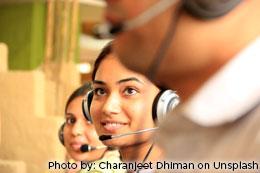Immigrant services expand in Canada

By Mata Press Service
& Tazeen Inam
New Canadian Media
The Federal Government will be pumping $65 million in funding extensions to service provider organizations to help new Canadians settle in the country.
The funding will be used to continue delivering important settlement services, including pre-arrival services, services for racialized newcomer women, and language training for newcomers in Francophone minority communities.
“Settlement services are key to setting up newcomers for success in Canada. They provide newcomers with the information and support they need to make informed decisions about their new lives in Canada before and after they arrive, which helps them successfully transition into their communities and find work faster,” said Immigration Canada in a statement.
The 15 service provider organizations with funding extensions for pre-arrival services serve clients in their country of origin and are based in British Columbia, Manitoba, Nova Scotia, Ontario and abroad.
“This investment will allow Canada to continue supporting the needs of newcomers across the world,” said Marie-France Lalonde, Parliamentary Secretary to the Minister of Immigration, Refugees and Citizenship
Among the organizations that received funding extensions were S.U.C.C.E.S.S. , which was founded in 1973 by a passionate group of volunteers who wanted to contribute back to Canada. It is a non-partisan, non-profit multicultural Canadian organization with a proud 50-year history of serving newcomers, seniors, youth and families.
“Since 2008, our Active Engagement and Integration Project (AEIP) has delivered pre-arrival settlement services to more than 41,000 newcomers from 155 countries,” said Queenie Choo, CEO of S.U.C.C.E.S.S.
Kim Jenkinson, executive director of HMC Connections in Oakville, Ont., said the resettlement sector is expanding as Canada welcomes more immigrants and there is a growing number of jobs available in the field.
“The settlement experience itself is so complex and sometimes disheartening, that they (new immigrants) really do want to help people manage more easily through the processes,” she said.
Social services in general are popular among immigrants for employment and volunteerism. And in particular, the settlement sector prioritizes hiring people who are bilingual in jobs ranging from front desk staff to settlement and employment counsellors, housing support, and language enhancement services.
“When I think of the people, we have to work for us — there are doctors, lawyers, architects, engineers — many of whom have just decided to stay with us instead of pursuing their original careers,” Jenkinson said. “Some because of the barriers of additional education, some because they found they enjoy helping people.”
Nyanquoi Suah came to Canada after 15 years in refugee camps in Guinea and Ghana. He was born in Liberia, one of six children, and raised by a single mom in a village with no school. He trekked about six kilometres each way to attend primary school in a nearby town. Suah was a good student and though he lived in poverty and was often bullied by his classmates for having no shoes, his mother encouraged him to study to create a better future for himself.
Nyanquoi Suah with the Minister of Immigration, Refugee and Citizenship Canada, the Honorable Sean Fraser, during the 2022 OCASI Leaders’ Forum that focused on current and emerging immigration and refugee issues in Ontario. Suah represented his organization during this forum. Photo supplied.
“Mom’s advice shaped me to be resilient and look for positives in any given life’s challenges, and I was able to overcome hardships and systemic barriers in Canada as a newcomer,” Suah said.
He now uses that same energy to help the new Canadians he works with as a manager with a refugee resettlement program in a federally funded agency-Progress Career Planning Institute in Toronto.
He helps newcomers to obtain their professional accreditation and to navigate the licensing process to integrate into Canadian society.
“I use my lived experience to motivate them, and I don’t call them clients. I call them fellow immigrants.”
Rasha Abdulsattar is a self-employed immigration consultant who supports people with their immigration process and applications. She also helps new immigrants access community resources.
She says her clients are like family. While helping them to get their permanent residency, Abdulsattar tries to build their confidence but also prepares them for the challenges they are likely to face.
She supports them in upgrading their education, enhancing their skills, career change and getting jobs.
She recalled a client inspired by her who earned a community social worker certificate.
“I was able to build a great relationship with them, and gaining their trust is a big achievement for me,” Abdulsattar said.
Abdulsattar escaped sectarian violence and military groups in Iraq that were kidnapping and killing civilians working with foreign organizations. Her husband, who was a United Nations logistics manager in Iraq, was safely removed from the country and posted in Sudan. Militants demanded he return, or they would kill Abdulsattar’s son. The family arrived in Canada in 2014 via Lebanon on humanitarian and compassionate grounds.
“When my husband was with us, I lived with this fear that I didn’t want to be a widow with small children,” she said.
Abdulsattar and her children planned to move to Jordan, but she couldn’t afford the cost to migrate. Instead, they moved to Syria and her husband was able to visit. After three years, her husband was posted in Lebanon, a 45-minute drive from Syria. The family moved to Lebanon, then three years later, in 2014, they decided to make Canada their home.
“I am grateful to the opportunity which was given to me by God to me in Canada with my children and seeing them growing and learning,” she said.









